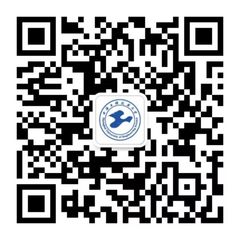報告內容🍋🟩:When 5G Meets with Autonomous Driving
報告人😮:Prof. Jenq-Neng Hwang
報告時間:12月23日 9:30
報告地點:現代交通工程中心7950會議室
報告人簡介:
Dr. Jenq-Neng Hwang received the BS and MS degrees, both in electrical engineering from the National Taiwan University, Taipei, Taiwan, in 1981 and 1983 separately. He then received his Ph.D. degree from the University of Southern California. In the summer of 1989, Dr. Hwang joined the Department of Electrical and Computer Engineering (ECE) of the University of Washington in Seattle, where he has been promoted to Full Professor since 1999. He served as the Associate Chair for Research from 2003 to 2005, and from 2011-2015. He is currently the Associate Chair for Global Affairs and International Development in the ECE Department. He is the founder and co-director of the Information Processing Lab., which has won CVPR AI City Challenges awards consecutively in the past years. He has written more than 350 journal, conference papers and book chapters in the areas of machine learning, multimedia signal processing, and multimedia system integration and networking, including an authored textbook on Multimedia Networking: from Theory to Practice, published by Cambridge University Press. Dr. Hwang has close working relationship with the industry on multimedia signal processing and multimedia networking.
Dr. Hwang received the 1995 IEEE Signal Processing Society's Best Journal Paper Award. He is a founding member of Multimedia Signal Processing Technical Committee of IEEE Signal Processing Society and was the Society's representative to IEEE Neural Network Council from 1996 to 2000. He is currently a member of Multimedia Technical Committee (MMTC) of IEEE Communication Society and also a member of Multimedia Signal Processing Technical Committee (MMSP TC) of IEEE Signal Processing Society. He served as associate editors for IEEE T-SP, T-NN and T-CSVT, T-IP and Signal Processing Magazine (SPM). He is currently on the editorial board of ZTE Communications, ETRI, IJDMB and JSPS journals. He served as the Program Co-Chair of IEEE ICME 2016 and was the Program Co-Chairs of ICASSP 1998 and ISCAS 2009. Dr. Hwang is a fellow of IEEE since 2001.
報告內容簡介:
Thanks to the ultra-reliable low-latency communication (URLLC) capability of the emergent 5G mobile networks, the information derived from advanced video object detections, multiple object tracking and 3D object localization based on the dash cameras can be jointly explored by the mobile edge computing (MEC) and real-time shared by all the local users through V2X infrastructure. To achieve this goal, several critical challenges need to be effectively overcome, more specifically, robust multiple object detection via detection-by-tracking for detected object associations in presence of missing or erroneous detections, reliable SLAM-based visual odometry for camera pose estimation (self-calibration) of dash cameras,reliable ground plane estimation for 2D to 3D inferences, finally coordinated mining of multiple dash cameras. When the cameras fail to reliably achieve these tasks due to poor lighting or adverse weather conditions, radar is usually more robust than the camera in severe autonomous driving scenarios. However, the semantic information provided by the radio signals is limited and difficult to extract. In this talk, I will also introduce a radio object detection network (RODNet) to detect objects purely from radio signals captured by Radar based on an innovative cross-modal supervision framework, which utilizes the rich information extracted from the camera to teach object detection for Radar. To the best of our knowledge, this is the first work that can achieve accurate on-road object detection using solely Radar data as the input, with the training ground truth provided by cameras without tedious and laborious human labelling of ground truth on the Radar signals.

